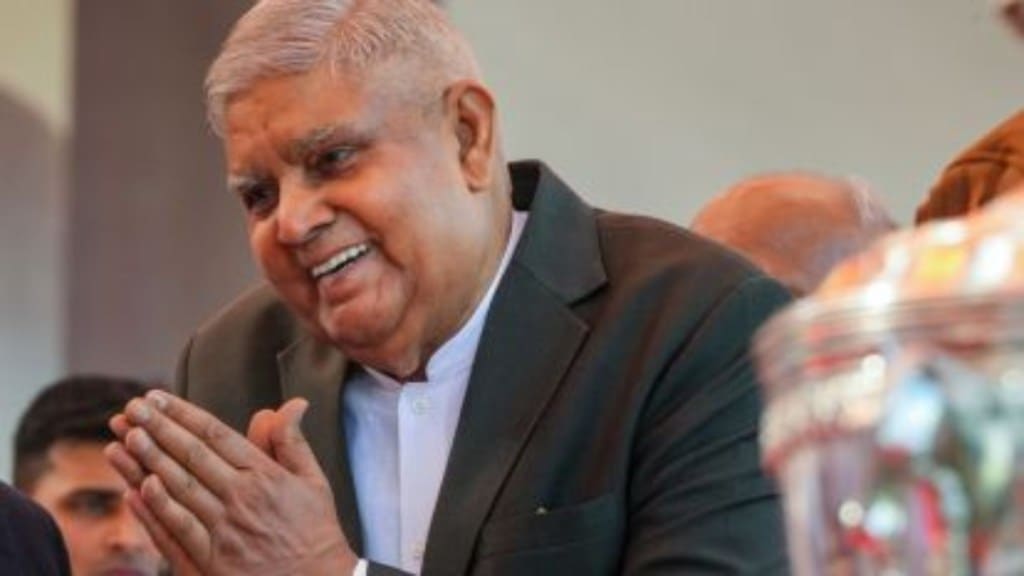Vice President Jagdeep Dhankhar tendered his resignation on Monday, citing medical reasons. In a letter addressed to President Droupadi Murmu, Dhankhar wrote, “To prioritise health care and abide by medical advice, I hereby resign as Vice President of India, effective immediately, in accordance with Article 67(a) of the Constitution.”
Dhankhar is the third vice president to resign before the term ends.
His resignation brings an abrupt end to a term that was constitutionally set to continue until 2027. Dhankhar, 74, assumed office in 2022 and served as the ex-officio Chairman of the Rajya Sabha during his tenure. His departure now sets the stage for a constitutionally mandated election to fill the country’s second-highest constitutional post.
What is the constitutional process to elect a new vice president?
With the post now vacant, the Election Commission of India is expected to act swiftly. As per Article 66 of the Constitution, the Vice President is elected by an Electoral College composed of members of both Houses of Parliament, the Lok Sabha and the Rajya Sabha, using a system of proportional representation by means of a single transferable vote. Voting is conducted by secret ballot.
The total Electoral College consists of 788 Members of Parliament (543 from the Lok Sabha and 245 from the Rajya Sabha). No members of state legislative assemblies are involved in this process, in contrast to the presidential election.
Eligibility criteria for vice presidential candidates
The Constitution stipulates specific conditions for a candidate aspiring to become Vice President:
- Must be a citizen of India
- Must be at least 35 years of age
- Must be eligible for election to the Rajya Sabha
- Must not hold any office of profit under the central or state government or any local or subordinate authority
Timeline and procedure for election
When a vacancy arises due to resignation, death, or removal, the election to fill the post must be held “as soon as possible.” A formal timeline and notification from the Election Commission is expected imminently. In cases where the term ends naturally, the election is completed before expiry. However, unexpected resignations like Dhankhar’s trigger accelerated timelines.
The Vice-President (Election) Rules, 1974, govern the process, ensuring it proceeds within the constitutional framework and under the supervision of the Election Commission.
The Vice President holds a largely ceremonial but constitutionally significant role. As chairman of the Rajya Sabha, the VP presides over the Upper House, ensuring order and procedural discipline. Though not a member of either House, the vice president plays a key role in the legislative process.
The Vice President can also step in as Acting President in the event of the President’s death, resignation, removal, or incapacity, until a new President is elected.

